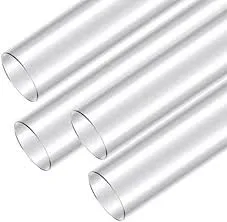Nov . 06, 2024 21:18 Back to list
pvc-m pipe
Understanding PVC-M Pipes The Versatile Solution for Modern Applications
Polyvinyl chloride modified (PVC-M) pipes have become an essential component in various industries due to their outstanding properties and adaptability. Unlike traditional PVC pipes, PVC-M is engineered to withstand adverse conditions while maintaining flexibility and durability. This article explores the benefits, applications, and advantages of using PVC-M pipes in diverse settings.
.
Another notable feature of PVC-M pipes is their excellent chemical resistance. They can withstand a variety of corrosive substances, making them ideal for transporting water, chemicals, and wastewater. This property is especially valuable in industrial settings where exposure to harsh materials is common. Furthermore, PVC-M pipes are resistant to biological growth, which means they can maintain their integrity over time without succumbing to degradation from microbial activity.
pvc-m pipe

The versatility of PVC-M pipes allows for a wide range of applications. In urban settings, they are commonly used in water distribution systems, irrigation networks, and residential plumbing, providing reliable and leak-proof solutions. In agriculture, PVC-M pipes have become the preferred choice for irrigation systems due to their durability and efficiency, contributing to improved crop yields. Additionally, they are increasingly used in infrastructure projects, including drainage systems and sewage management, where their resilience and longevity offer significant benefits.
Environmentally, PVC-M pipes present a more sustainable option compared to some other materials. They are 100% recyclable, which means that at the end of their lifecycle, they can be processed and reused in new products, thereby reducing waste. Furthermore, their longevity reduces the frequency of replacements, leading to lower material consumption over the long term.
In summary, PVC-M pipes stand out as a robust and adaptable solution for various applications across multiple industries. Their enhanced impact resistance, chemical stability, and lightweight properties make them an attractive option for construction, agriculture, and infrastructure projects. As demand for sustainable and reliable piping solutions continues to grow, PVC-M pipes are likely to play an increasingly significant role in meeting modern needs while minimizing environmental impact.
-
High-Quality PPR Pipes and Fittings Durable ERA PPR & PVC PPR Solutions
NewsJul.08,2025
-
Black HDPE Cutting Board - Durable, Non-Porous & Food Safe HDPE Plastic Cutting Board
NewsJul.08,2025
-
High-Quality CPVC Panel Durable HDPE & PVC Panels Supplier
NewsJul.08,2025
-
Double PE Welding Rod Supplier - High Strength, Durable & Versatile Welding Solutions
NewsJul.07,2025
-
High-Quality PVC-O Pipe Supplier Durable 75mm PVC Pipe & Connections Leading PVC Pipe Company
NewsJul.07,2025
-
HDPE Drainage Pipe Supplier – Durable & Corrosion-Resistant Solutions
NewsJul.06,2025

